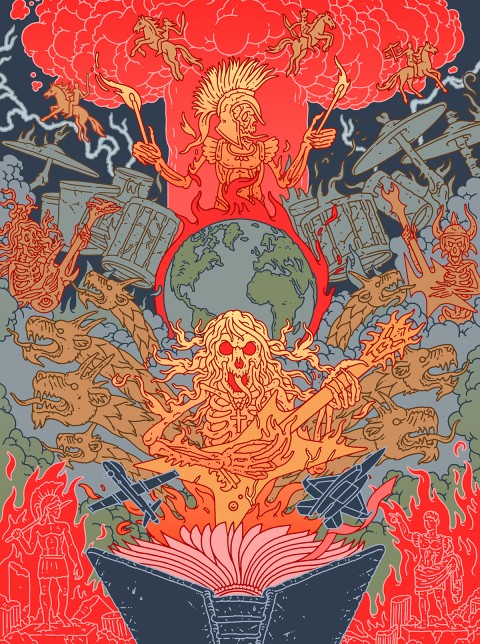Music for the apocalypse
Growing up, I never understood the book of Revelation. Then I started listening to Black Sabbath.

(Illustration by Eric Nyquist)
Growing up in an evangelical Christian household, I was not allowed to listen to secular music—or to any music that did not explicitly point to Jesus Christ and reflect “biblical values.” Heavy metal, in particular, was considered evil, food for the flesh that would destroy my Christian spirit.
Then, when I was ten years old, my uncle shared a DVD of music videos, This Is Solid State, Volume 4, from the Christian metal label Solid State Records. As I watched it and the other volumes in the series, I discovered bands like Norma Jean, mewithoutYou, and Blindside. I was awestruck. Soon after that I picked up the electric guitar—I wanted to learn how to play what I was hearing. In high school, I was the lead vocalist in a Christian metal band called With Unveiled Faces. We even recorded an EP.
I went to college at Regent University in Virginia Beach, founded by televangelist Pat Robertson. As a biblical studies major, I read Abraham Joshua Heschel’s monumental text on the biblical prophets—my gateway to liberation theology. That led me to Union Theological Seminary, where I discovered Black Sabbath, widely regarded as the original heavy metal band. What drew me to the group was the antiwar song “War Pigs.” When I first heard it I was taken aback by its explicitly apocalyptic nature.





